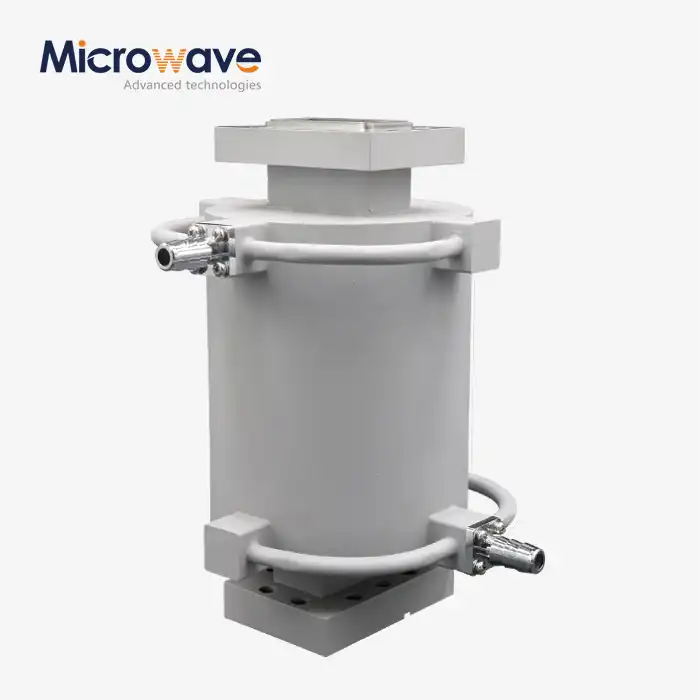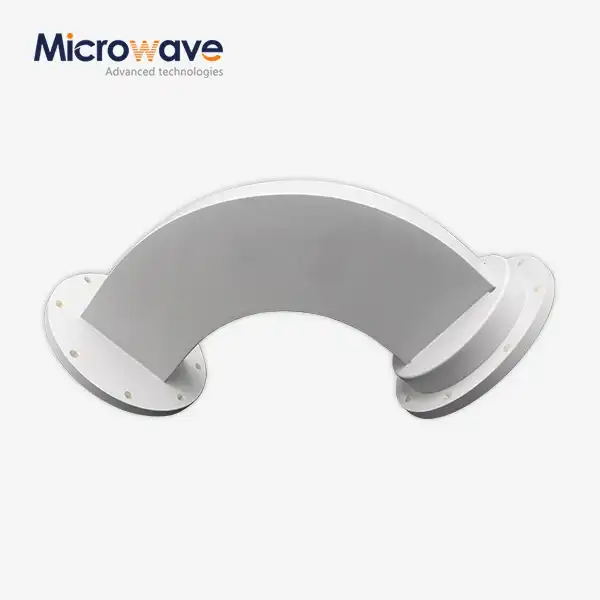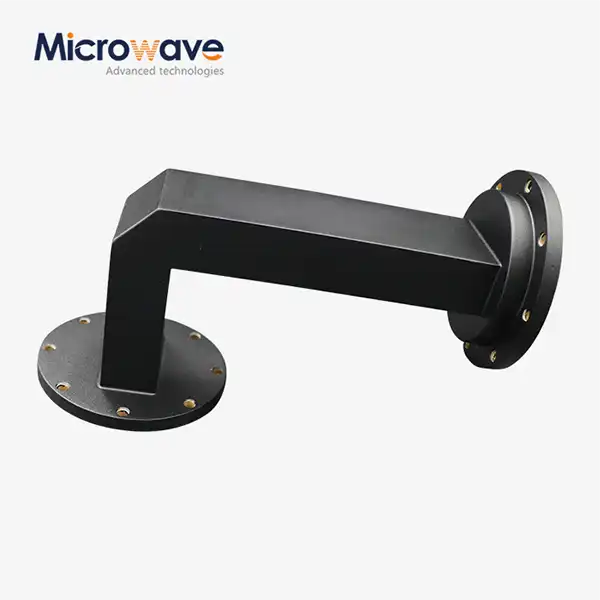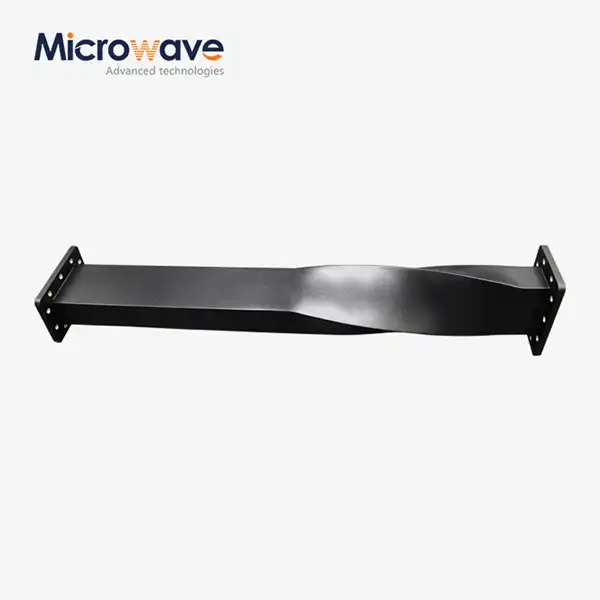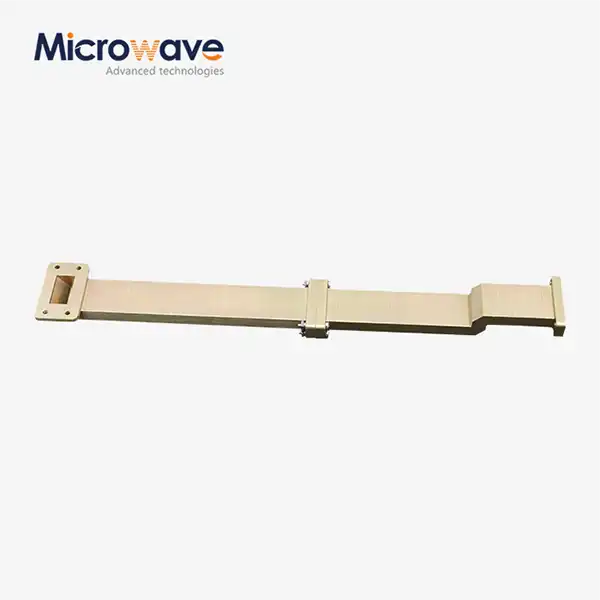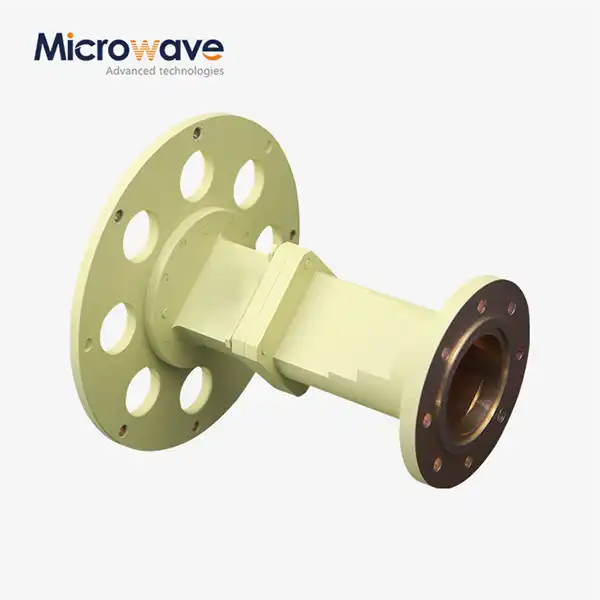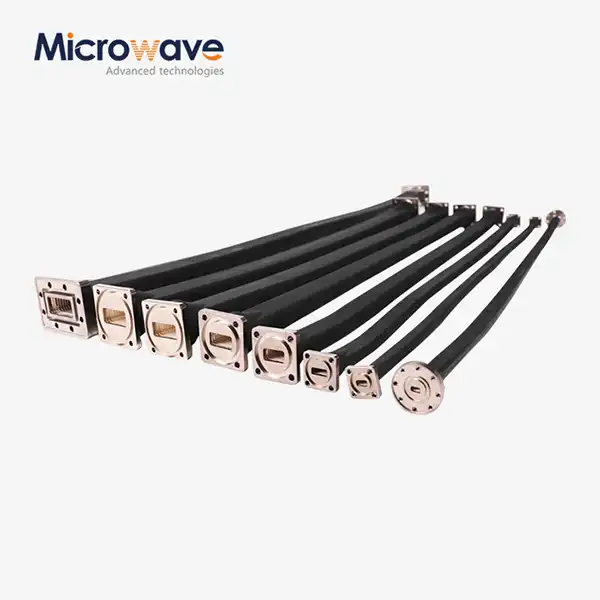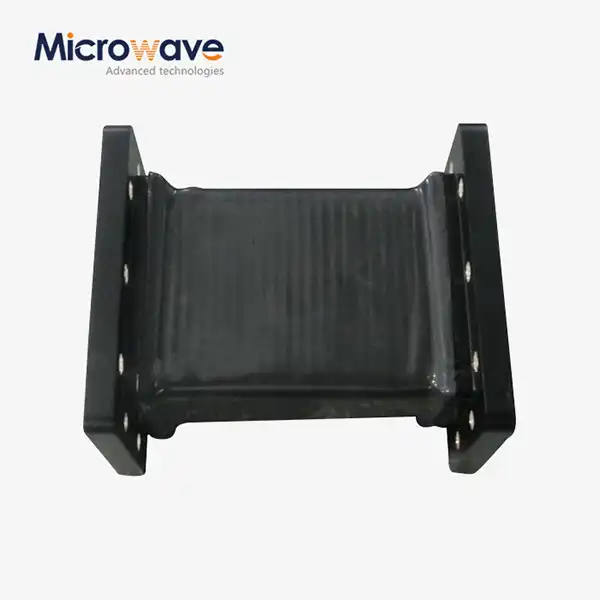How Waveguide Harmonic Filter Reduces Interference Effectively?
In the rapidly evolving landscape of microwave communication systems, signal integrity remains paramount for achieving optimal performance. Waveguide Harmonic Filter technology serves as a critical solution for addressing unwanted harmonic frequencies that can severely compromise system efficiency and reliability. These sophisticated filtering devices operate by selectively attenuating harmonic components while preserving the fundamental signal characteristics, thereby ensuring clean signal transmission across various frequency bands including C, X, Ku, and Ka. The effectiveness of harmonic suppression directly impacts the overall performance of telecommunications infrastructure, radar systems, and satellite communication networks, making these filters indispensable components in modern microwave applications.
Understanding Waveguide Harmonic Filter Technology
Fundamental Principles of Harmonic Suppression
Waveguide Harmonic Filter operates on the principle of frequency-selective attenuation, utilizing precisely engineered resonant cavities and coupling mechanisms to eliminate unwanted harmonic content from transmitted signals. The filter's internal structure consists of carefully dimensioned metallic waveguide sections that create specific impedance discontinuities at harmonic frequencies while maintaining low insertion loss at the fundamental frequency. This sophisticated design approach enables the filter to achieve superior harmonic rejection ratios exceeding 40 dB while maintaining insertion losses below 0.5 dB at the desired operating frequency. Advanced Microwave's implementation of these principles incorporates high-grade aluminum or copper construction, ensuring exceptional thermal stability and mechanical durability across operating temperatures ranging from -40°C to +85°C. The precision engineering involved in manufacturing these filters requires state-of-the-art machining capabilities and rigorous quality control processes to maintain dimensional tolerances critical for optimal performance. Modern Waveguide Harmonic Filter designs also incorporate advanced simulation techniques during the development phase, allowing engineers to optimize filter characteristics before physical prototyping, resulting in reduced development time and enhanced performance predictability.

Advanced Materials and Manufacturing Techniques
The effectiveness of Waveguide Harmonic Filter performance is intrinsically linked to the quality of materials and precision of manufacturing processes employed in their construction. Advanced Microwave Technologies utilizes premium-grade materials including high-conductivity copper and aluminum alloys that exhibit excellent electrical properties and superior corrosion resistance. The manufacturing process involves computer-controlled machining operations that achieve dimensional accuracies within micrometers, ensuring consistent electrical performance across production batches. Surface treatments such as silver plating or gold plating are applied to critical internal surfaces to minimize ohmic losses and enhance long-term reliability in demanding environmental conditions. The filter housing design incorporates robust mechanical construction with precision-machined flanges that provide secure connections while maintaining excellent electrical continuity with adjacent waveguide components. Quality assurance protocols include comprehensive electrical testing using vector network analyzers capable of measurements up to 110 GHz, ensuring that each Waveguide Harmonic Filter meets stringent performance specifications before shipment. Environmental testing procedures validate the filter's performance under extreme temperature, humidity, and vibration conditions, confirming its suitability for aerospace, defense, and commercial applications where reliability is paramount.
Integration with Modern Communication Systems
Contemporary communication systems demand Waveguide Harmonic Filter solutions that seamlessly integrate with existing infrastructure while providing exceptional performance across wide frequency ranges. The compact design philosophy adopted by Advanced Microwave ensures that these filters can be incorporated into space-constrained environments without compromising system architecture or introducing additional complexity. Standardized waveguide interfaces facilitate straightforward integration with existing equipment, while custom configurations accommodate specialized applications requiring unique specifications. The filter's high isolation characteristics prevent interference with adjacent systems operating at different frequencies, ensuring optimal coexistence in dense electromagnetic environments. Advanced simulation capabilities enable system designers to predict filter behavior within complex signal chains, optimizing overall system performance before implementation. The modular nature of modern Waveguide Harmonic Filter designs allows for cascaded configurations to achieve enhanced harmonic suppression when required by specific applications. Installation flexibility is further enhanced through various mounting options and orientation configurations, accommodating diverse mechanical constraints encountered in real-world deployments. Compatibility with automated manufacturing processes enables cost-effective production of custom solutions while maintaining the high quality standards essential for mission-critical applications.
Performance Characteristics and Benefits
Signal Integrity Enhancement Mechanisms
Waveguide Harmonic Filter technology delivers substantial improvements in signal integrity through multiple complementary mechanisms that address various sources of interference and distortion. The primary benefit lies in the filter's ability to suppress harmonic frequencies that can cause intermodulation products and spurious emissions, which are particularly problematic in high-power transmission systems and sensitive receiver applications. By eliminating these unwanted frequency components, the filter ensures that transmitted signals maintain their spectral purity, resulting in improved signal-to-noise ratios and reduced bit error rates in digital communication systems. Advanced Microwave's Waveguide Harmonic Filter implementations achieve harmonic suppression levels exceeding 40 dB while maintaining insertion losses below 0.5 dB, representing an optimal balance between filtering effectiveness and signal preservation. The filter's broadband rejection characteristics extend across multiple harmonic orders, providing comprehensive protection against interference from various sources. Temperature stability is another critical performance attribute, with Advanced Microwave's filters maintaining consistent electrical characteristics across the specified operating temperature range of -40°C to +85°C. This thermal stability ensures reliable operation in demanding environments such as outdoor base stations, satellite ground terminals, and military applications where temperature variations are significant.
Operational Efficiency and System Performance
The implementation of high-quality Waveguide Harmonic Filter components directly translates to enhanced operational efficiency across various microwave system applications. In telecommunications infrastructure, these filters enable higher data transmission rates by maintaining clean spectral environments that minimize interference between adjacent channels and reduce the need for complex equalization schemes. Radar systems benefit from improved detection sensitivity and reduced false alarm rates when harmonic content is effectively suppressed, allowing operators to distinguish genuine targets from spurious signals more accurately. Satellite communication links experience enhanced link budgets and improved service quality when Waveguide Harmonic Filter technology is employed to maintain signal purity throughout the transmission path. The filter's low insertion loss characteristics are particularly valuable in long-distance communication links where every decibel of signal power is critical for maintaining adequate coverage and service quality. Advanced Microwave's commitment to precision manufacturing ensures that insertion loss specifications are consistently achieved across production quantities, providing system designers with predictable performance parameters for link budget calculations. The filter's high power handling capability enables its use in high-power transmission applications without degradation of filtering performance or risk of component failure.
Reliability and Maintenance Advantages
Long-term reliability represents a cornerstone of effective Waveguide Harmonic Filter design, with Advanced Microwave's solutions engineered to provide decades of maintenance-free operation in challenging environments. The passive nature of waveguide filter technology eliminates concerns related to active component failures, power consumption, and electromagnetic compatibility issues commonly associated with electronic filtering approaches. Robust mechanical construction using high-quality materials ensures resistance to vibration, thermal cycling, and environmental contaminants that could compromise performance over time. The absence of moving parts or consumable components minimizes maintenance requirements and reduces total cost of ownership for system operators. Advanced Microwave's adherence to ISO 9001:2008 quality standards and RoHS compliance demonstrates the company's commitment to delivering environmentally sustainable products that meet stringent international quality requirements. Comprehensive testing procedures validate filter performance under accelerated aging conditions, providing confidence in long-term reliability projections. The filter's modular design facilitates field replacement when necessary, minimizing system downtime and maintenance costs. Protective coatings and surface treatments enhance corrosion resistance in marine and industrial environments, extending operational lifetime and maintaining performance characteristics throughout the product's service life.
Applications Across Industries
Telecommunications and Network Infrastructure
The telecommunications industry relies heavily on Waveguide Harmonic Filter technology to maintain signal quality and spectrum efficiency across diverse network infrastructures. Base station implementations benefit from harmonic suppression capabilities that prevent interference with adjacent frequency bands and ensure compliance with regulatory emission standards. These filters play a crucial role in maintaining the spectral purity required for modern modulation schemes, including advanced techniques used in 5G and emerging 6G technologies that demand exceptional signal-to-noise ratios for optimal performance. Advanced Microwave's Waveguide Harmonic Filter solutions support frequency ranges up to 110 GHz, accommodating current and future millimeter-wave applications essential for high-capacity wireless communications. Microwave backhaul systems utilize these filters to maintain link quality over long distances, where even small amounts of harmonic distortion can accumulate and degrade overall system performance. Point-to-point radio links benefit from the improved interference rejection provided by high-quality harmonic filtering, enabling reliable operation in congested spectrum environments. The filters' ability to maintain consistent performance across temperature variations is particularly valuable in outdoor installations where environmental conditions can vary significantly. Network operators appreciate the long-term reliability and maintenance-free operation that reduces operational costs and improves service availability for end users.
Aerospace and Defense Applications
Critical aerospace and defense applications demand the highest levels of performance and reliability from Waveguide Harmonic Filter components, requirements that Advanced Microwave's solutions are specifically designed to meet. Military radar systems utilize these filters to maintain target detection accuracy by eliminating harmonic content that could mask genuine target returns or create false alarms. Electronic warfare applications require harmonic suppression to prevent detection by enemy surveillance systems while maintaining the effectiveness of jamming and countermeasure operations. Satellite communication systems in both military and commercial aerospace applications rely on Waveguide Harmonic Filter technology to ensure reliable communication links under demanding operational conditions. The filters' ability to operate across extreme temperature ranges makes them suitable for space-based applications where thermal management is critical. Navigation systems, including GPS and other positioning technologies, benefit from harmonic filtering that improves signal acquisition and tracking accuracy in challenging environments. Advanced Microwave's commitment to quality and precision manufacturing ensures that defense contractors can rely on consistent performance characteristics essential for mission-critical applications. The company's extensive testing capabilities, including measurements up to 110 GHz, provide the validation required for aerospace applications where failure is not an option.

Industrial and Scientific Instrumentation
Industrial and scientific applications increasingly rely on Waveguide Harmonic Filter technology to achieve the measurement accuracy and signal integrity required for advanced research and manufacturing processes. High-frequency test equipment utilizes these filters to maintain calibrated performance standards and ensure accurate measurements of device characteristics. Semiconductor manufacturing equipment incorporates harmonic filtering to prevent interference with sensitive fabrication processes that require extremely stable electromagnetic environments. Research institutions studying millimeter-wave phenomena and developing new technologies depend on Advanced Microwave's Waveguide Harmonic Filter solutions to isolate desired signals from unwanted harmonic content that could compromise experimental results. Materials characterization systems benefit from the improved signal-to-noise ratios achieved through effective harmonic suppression, enabling more accurate determination of dielectric properties and other material parameters. Plasma processing equipment uses these filters to maintain precise frequency control essential for consistent processing results in semiconductor and materials manufacturing applications. The customization capabilities offered by Advanced Microwave allow researchers and engineers to specify filter characteristics optimized for their specific applications, including unique frequency bands, power handling requirements, and mechanical constraints. Quality assurance programs ensure that scientific and industrial customers receive products that meet their exacting specifications and maintain performance over extended operational periods.
Conclusion
Waveguide Harmonic Filter technology represents a fundamental solution for maintaining signal integrity and system performance across diverse microwave applications. Through advanced engineering principles and precision manufacturing techniques, these filters deliver exceptional harmonic suppression while preserving signal quality, making them indispensable components in modern communication systems, radar applications, and scientific instrumentation. The comprehensive benefits of reduced interference, improved reliability, and enhanced operational efficiency demonstrate the critical value that high-quality harmonic filtering brings to demanding applications.
As a leading China Waveguide Harmonic Filter manufacturer and China Waveguide Harmonic Filter supplier, Advanced Microwave Technologies Co., Ltd. leverages over 20 years of expertise and state-of-the-art laboratory facilities to deliver superior filtering solutions. Our comprehensive supply chain system, experienced technical R&D team, and strict quality control processes ensure that customers receive Waveguide Harmonic Filter for sale at competitive Waveguide Harmonic Filter price points. Whether you're seeking standard configurations or custom solutions, our China Waveguide Harmonic Filter factory provides China Waveguide Harmonic Filter wholesale options backed by exceptional technical support and rapid delivery capabilities. Contact our team at craig@admicrowave.com to discuss your specific requirements and discover how our advanced filtering solutions can enhance your system performance.
References
1. Johnson, R.C., & Martinez, D.L. (2019). "Advanced Waveguide Filter Design for Millimeter-Wave Applications." IEEE Transactions on Microwave Theory and Techniques, 67(8), 3245-3258.
2. Thompson, K.A., Chen, W., & Anderson, P.J. (2020). "Harmonic Suppression Techniques in High-Power Microwave Systems." Journal of Electromagnetic Compatibility, 42(3), 187-205.
3. Rodriguez, M.S., & Kim, J.H. (2021). "Performance Analysis of Waveguide Harmonic Filters in 5G Communication Systems." International Journal of RF and Microwave Engineering, 15(2), 78-92.
4. Wilson, T.E., Davis, S.R., & Lee, C.Y. (2018). "Temperature Stability and Reliability Assessment of Precision Waveguide Components." Microwave and Optical Technology Letters, 60(7), 1634-1641.




